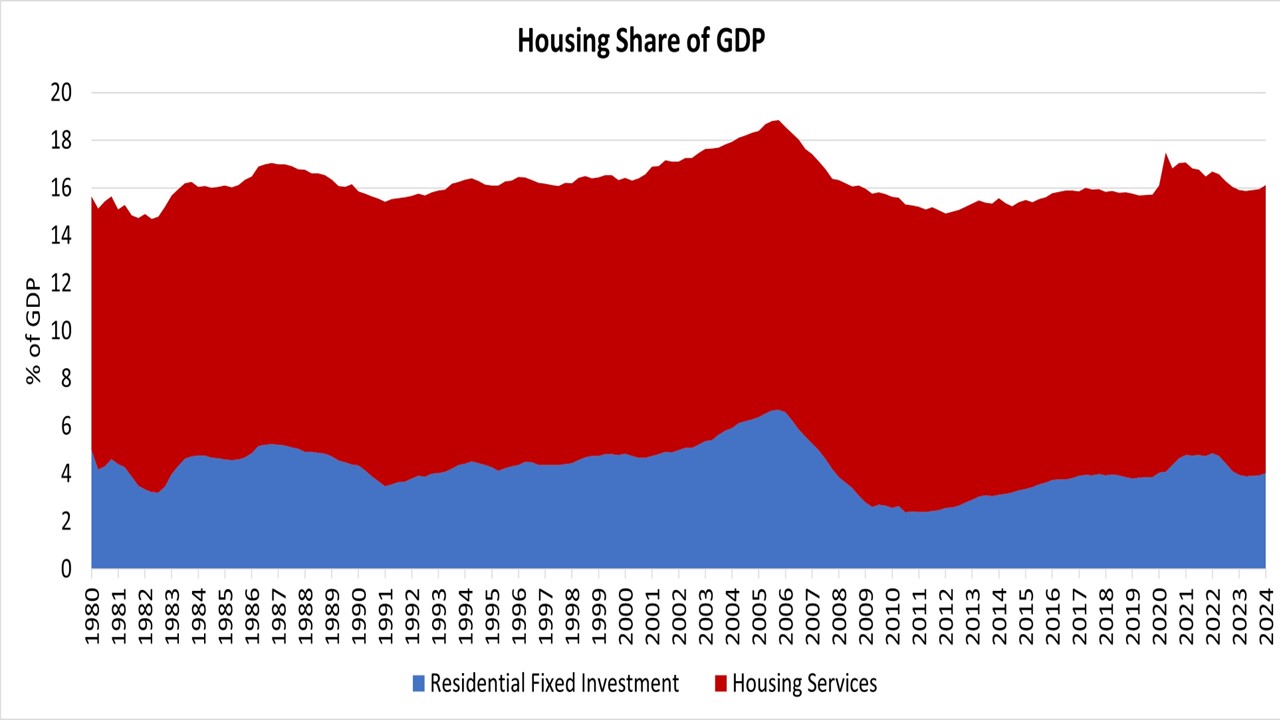Housing’s share of the economy rose to 16.1% in the first quarter of 2024. The share remained below 16% for all of 2023 at 15.9% in each of the four quarters. This increase to above 16% marks the first-time housing’s share of GDP is above 16% since 2022.
In the first quarter, the more cyclical home building and remodeling component – residential fixed investment (RFI) – increased to 4.0% of GDP, up from 3.9% in the fourth quarter. RFI added 52 basis points to the headline GDP growth rate in the first quarter of 2024, marking three consecutive quarters of positive contributions. Housing services added 17 basis points to GDP growth in the first quarter. Among household expenditures for services, housing services contributions were behind health care (0.59), financial services and insurance (0.37) and other services (0.18).

Overall GDP increased at a 1.6% annual rate, following a 3.4% increase in the fourth quarter of 2023, and a 4.9% increase in the third quarter of 2023.
Housing-related activities contribute to GDP in two basic ways:
The first is through residential fixed investment (RFI). RFI is effectively the measure of home building, multifamily development, and remodeling contributions to GDP. It includes construction of new single-family and multifamily structures, residential remodeling, production of manufactured homes and brokers’ fees.
For the first quarter, RFI was 4.0% of the economy, recording a $1.1 trillion seasonally adjusted annual pace. RFI grew 13.9% at an annual rate in the first quarter, the highest rate seen since the fourth quarter of 2020 (30.1%).
The second impact of housing on GDP is the measure of housing services, which includes gross rents (including utilities) paid by renters, and owners’ imputed rent (an estimate of how much it would cost to rent owner-occupied units), and utility payments. The inclusion of owners’ imputed rent is necessary from a national income accounting approach, because without this measure, increases in homeownership would result in declines in GDP.
For the first quarter, housing services represented 12.1% of the economy or $3.4 trillion on a seasonally adjusted annual basis. Housing services grew 1.4% at an annual rate in the first quarter.
Historically, RFI has averaged roughly 5% of GDP while housing services have averaged between 12% and 13%, for a combined 17% to 18% of GDP. These shares tend to vary over the business cycle. However, the housing share of GDP lagged during the post-Great Recession period due to underbuilding, particularly for the single-family sector.
Discover more from Eye On Housing
Subscribe to get the latest posts sent to your email.

